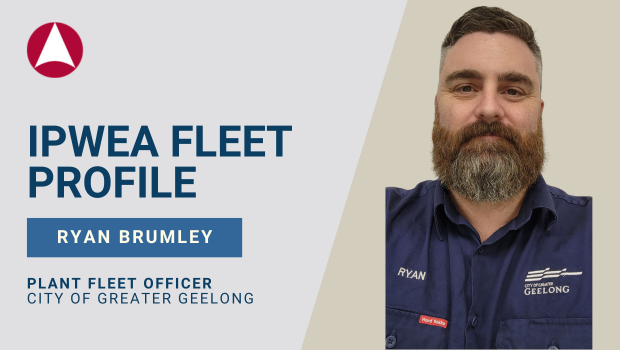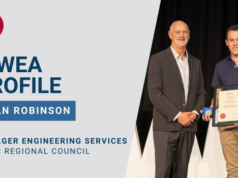How did you get started in the Fleet Industry? I always had a passion for cars, trucks and machinery growing up. After leaving high school and trying several different career paths, I gravitated back to what interested me and as it turned out, that is all things fleet and asset management.
How long have you been working in fleet and what roles have you had? After university I did an apprenticeship as a mechanic. Then as my career progressed on the tools, I developed a real passion for large fleet maintenance planning. I progressed to managing the maintenance for a hire company then once an opportunity at the local council came up, I jumped at the chance. Since joining council, I have worked as the Plant Fleet Officer looking after 3 workshops of maintenance staff as well as all heavy vehicle, plant, and equipment procurement. Currently I am in the Fleet coordinator role, overseeing the entire fleet, from maintenance planning, procurement, budget planning and stores inventory management.
Tell us about your current fleet? Currently we have 762 fleet assets as well as 1193 minor tools, plant, and equipment that we manage. Planning for and maintaining a diverse fleet of this size is both challenging and rewarding in its own ways.
What are your top three priorities this year for your fleet?
- Integrate more EV and plug in hybrid to our light fleet.
- Continue with our telematics roll out and improve data collection.
- Consolidate and reduce the number of minor assets to a more manageable level.
What do you think are the top 2 challenges currently facing the fleet industry?
- Increasing costs, both capital and operational. Managing these will become increasingly significant as they continue to rise and put more pressure on fleet managers to ensure the business needs are met within budgets.
- Transition to alternative fuels for vehicles and equipment. The early adoption tax on most alternatives is making transition near impossible for many fleet managers.
What do you think fleet practitioners should do to address the top 2 challenges that you mentioned?
- Ensuring that budgets are projected correctly within the business and emphasising the importance of proper fleet management to mitigate waste and underutilisation of assets.
- Research and apply for grants and financial assistance, especially in the case of EV charging infrastructure. Talk to peers and other fleet professionals to keep in the loop of where this assistance is coming from and how to access it.
How do you think the fleet industry will change in the longer term? Implementation of technology will be a significant change in the fleet industry going forward. How we capture and analyse data using AI, as well as the transition to alternative fuels will lead to many challenges and opportunities for fleet managers and operators.
What do you think fleet practitioners should think about to be ready for the future? Data, data, data. The best way to plan is to analyse the past and present to be able to effectively react to change.
How should fleet practitioners better prepare themselves to be leaders? Collect information and data. Bringing people along for the ride is much easier when you have the information to back it up and explain the ‘why’ during any conversations.
If you could change one thing about your career in fleet, what would that be? That I started it earlier. I didn’t know what I wanted to do after high school so tried several things. Now I have settled into the world of fleet/asset management, I wish I had done it from the start.
What’s your favourite sport and team you follow? I’m a bit of a sport nut, I’ll watch anything that’s a competition, regardless of who is playing. If I had to pick a favourite, it would be rugby league and the mighty Melbourne Storm.














